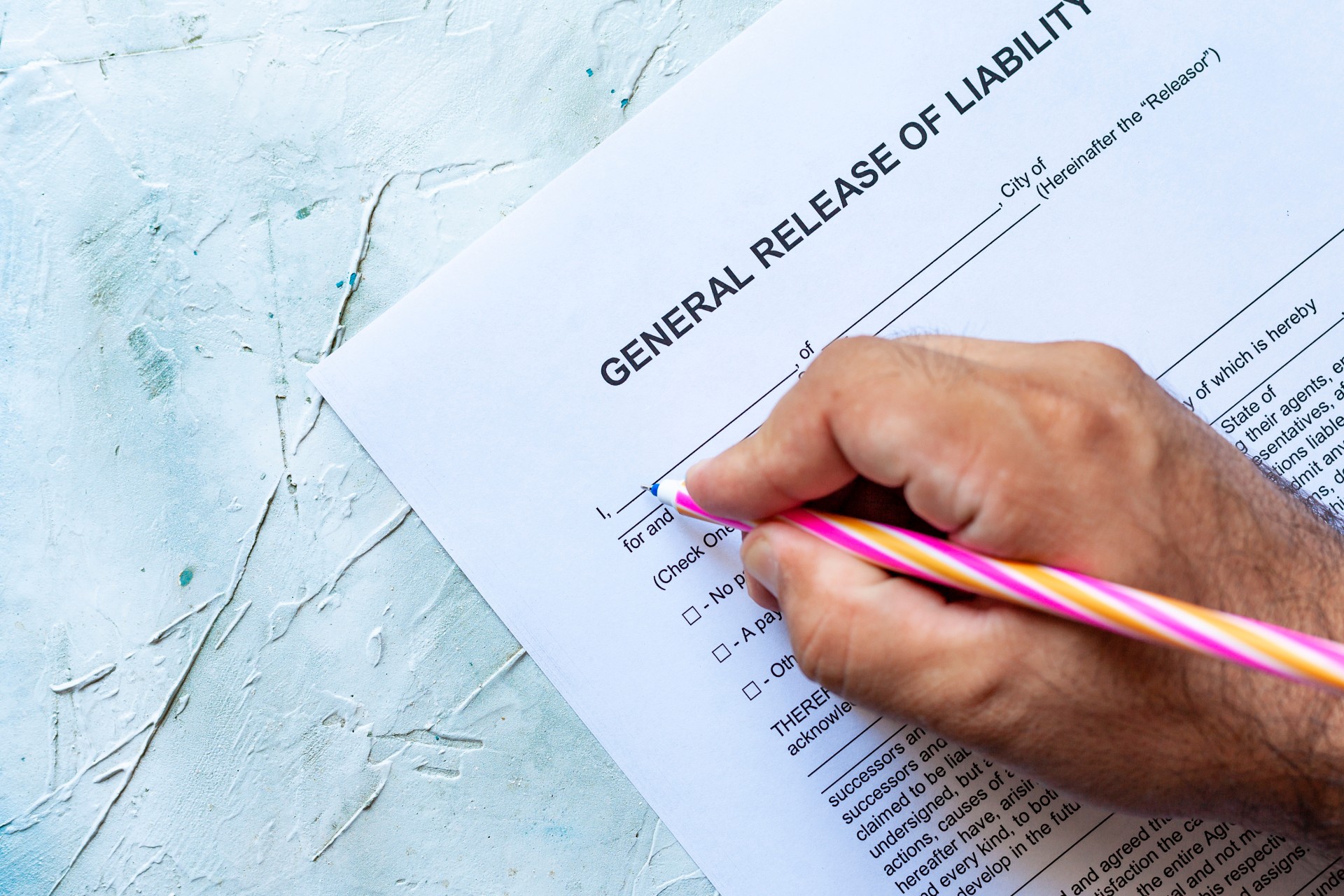
Recently, we have seen an increase in the number of questions received from policyholders concerning the use of waivers to prevent malpractice lawsuits. Specifically, the question is usually, “Can I have patients sign a waiver prior to providing care/treatment whereby the patient agrees not to sue me?” The answer is generally no. A waiver cannot be used to protect a physician or other healthcare provider from a claim involving professional negligence.
A “waiver” is a document that contains exculpatory language that removes liability from one party and waives the rights of the other. In addition to the term “waiver,” sometimes this type of language is referred to as a “disclaimer” or “hold harmless” agreement. Regardless of what it is called, the intent is the same – to take away the patient’s right to sue for medical malpractice. It is important to note that a waiver is different from an informed consent document. Informed consent documents are affirmative acknowledgements by the patient that they have received appropriate information relative to the treatment, procedure, or medication they will be receiving so as to make an informed decision, but they are not having their rights to sue taken away if the provider delivers negligent care that falls below the accepted standard.
Medical malpractice waivers are generally not legally binding because most courts have held that they are against public policy. For example, in 1977, the Tennessee Supreme Court held in the case of Olson v. Molzen that liability waivers for negligence are invalid in medical malpractice cases as a matter of public policy. This decision made it clear that a patient cannot be required to sign away their right to sue for negligence as a condition of receiving medical treatment. The court further stated it did not approve of a professional gaining a license to commit negligence through an exculpatory contract, and that the medical profession operates in an area of strong public interest and protecting that interest must be the priority. Finally, the court noted the vast disparity in bargaining power between a medical provider and a patient, who may feel they have no choice but to sign the document.
The majority of U.S. states have held that waivers for medical malpractice are generally invalid for the same reasons recognized by the Tennessee Supreme Court in Olson. These states include, but are not limited to, Kentucky, Arkansas, Alabama, Virginia, Georgia, Texas, Oklahoma, North Carolina, South Carolina, Indiana, Michigan, Florida, Louisiana, Mississippi, and Missouri.
Other reasons considered by the courts for holding a waiver to be invalid include whether it was signed under duress, involved misrepresentation or fraud, and if the language was unclear, ambiguous, or overly broad. Waivers in professional negligence cases are usually disfavored by the courts, and judges will often look for reasons to invalidate the waiver. A possible exception might be in cases involving experimental treatment or trial studies provided the patient is fully and accurately informed of the experimental and unproven nature of the treatment/medication, purpose of the patient’s participation, risks and possible side-effects, and the patient’s participation is strictly voluntary. You should always consult an attorney to review any specific waiver to be used in these types of experiment or trial study programs.
Should you have any questions regarding waivers or any other risk topic, please contact our Risk Education Department or one of our Claims Attorneys.
The contents of The Sentinel are intended for educational/informational purposes only and do not constitute legal advice. Policyholders are urged to consult with their personal attorney for legal advice, as specific legal requirements may vary from state to state and/or change over time.